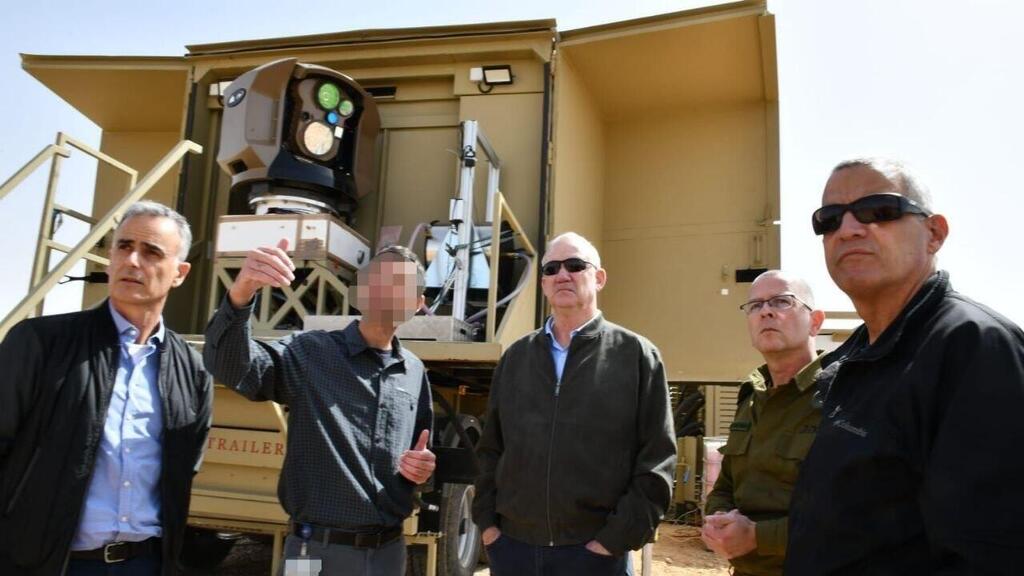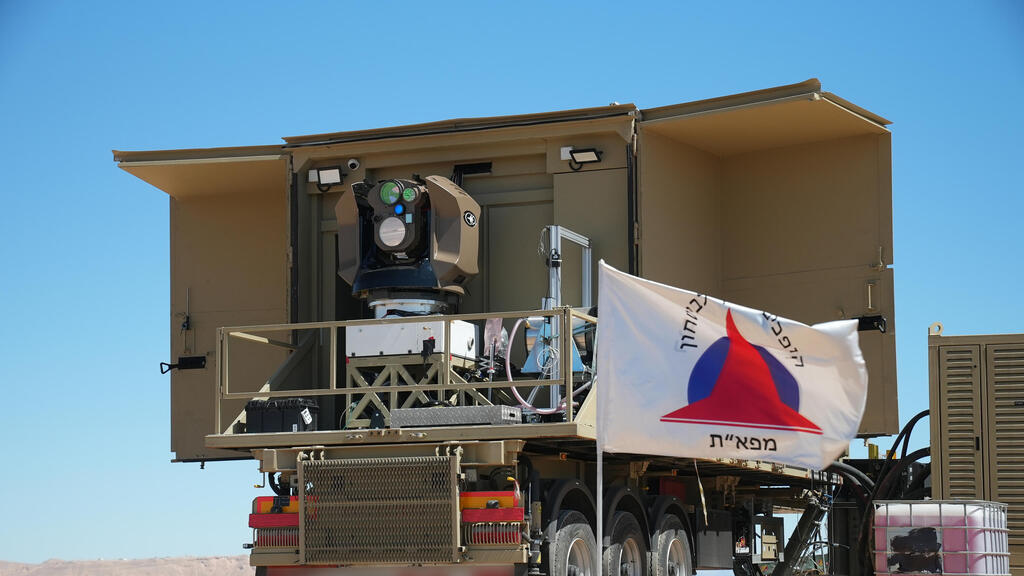Defense Minister Benny Gantz revealed on Wednesday that since the signing of the Abraham Accords, Israeli arms exports to Arab countries surged significantly.
Speaking to reports, Gantz said that since the signing of the historic U.S.-brokered peace agreements between Jerusalem and a host of Muslim-majority countries, Israeli defense and military officials have held north of 150 meetings with regional allies and inked defense procurement deals with a total worth in excess of $3 billion.
2 View gallery


Defense Minister Benny Gantz, center, overlooks test run of Israeli-developed laser-based missile defense system
(Photo: Elad Malka)
Defense officials believe the war in Ukraine would fuel a buying frenzy of Israeli-made defense systems among European armies.
Meanwhile, Gantz, alongside senior Defense Ministry and Israel Air Force officials, is expected to present Israel's new indigenously-developed laser-based missile defense system Iron Beam to U.S. President Joe Biden during his visit to the Jewish state next week.
The game-changer defense system, in which Israel's defense establishment is said too have invested more than one billion shekels, was successfully tested earlier this year and is said to be able to intercept missiles, drones and mortars shells.
Israel would seek financial support from the U.S. for the completion of the project that would allow the Jewish state to intercept almost any threat at a minimal cost.
However, senior defense officials are concerned that the dispersal of the Knesset and the upcoming general elections would jam up the strategically sensitive project.
Gantz vowed to allocate north of NIS 500 million ($143 million) to complete works on the system which is expected to become operational within two years at the very least.


